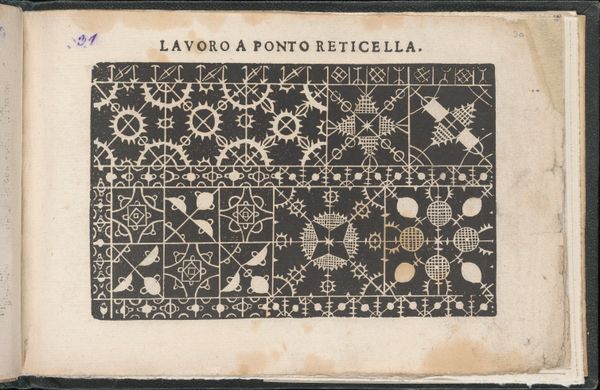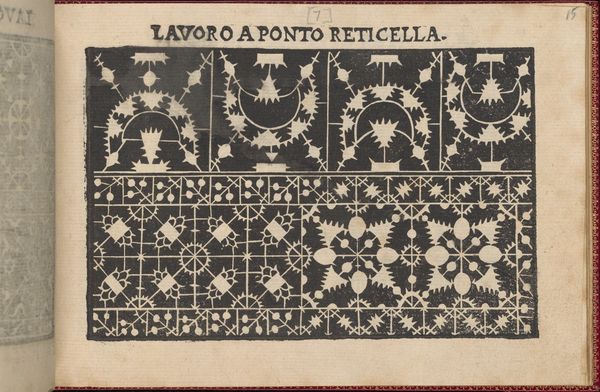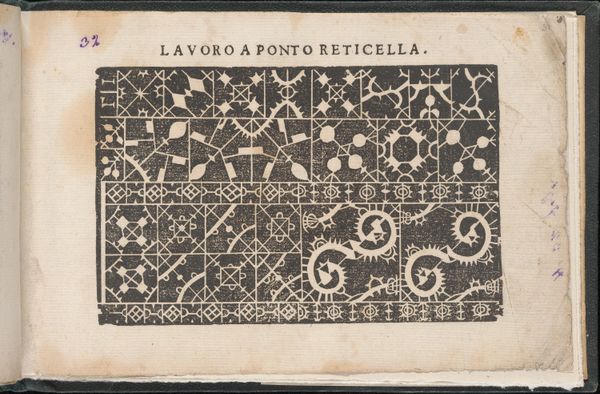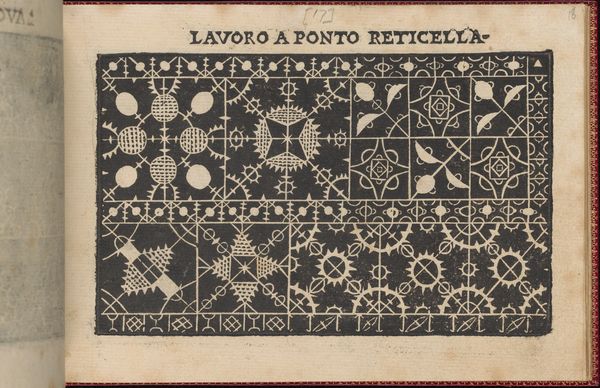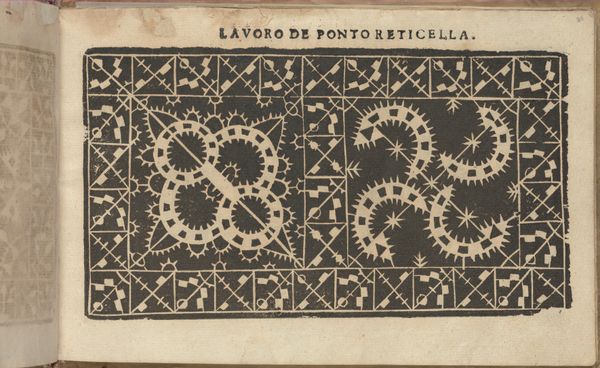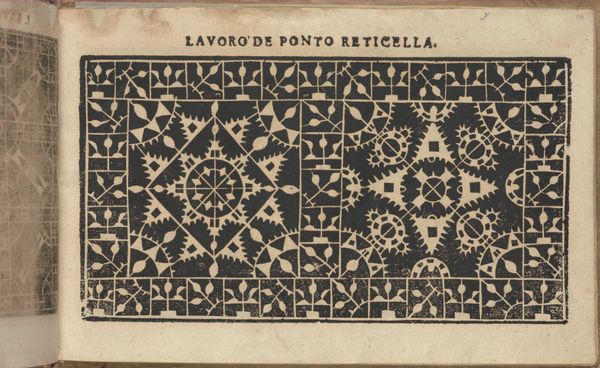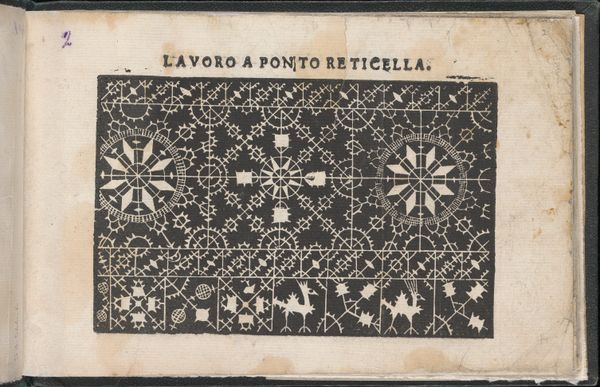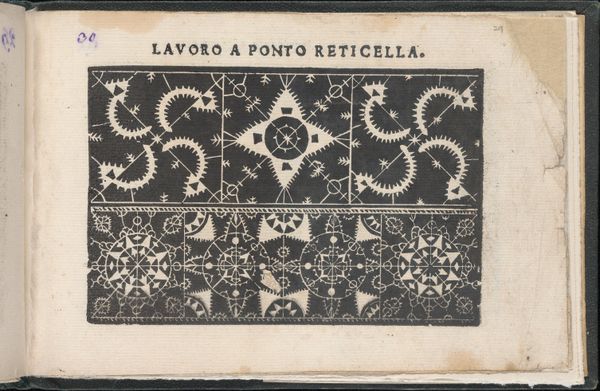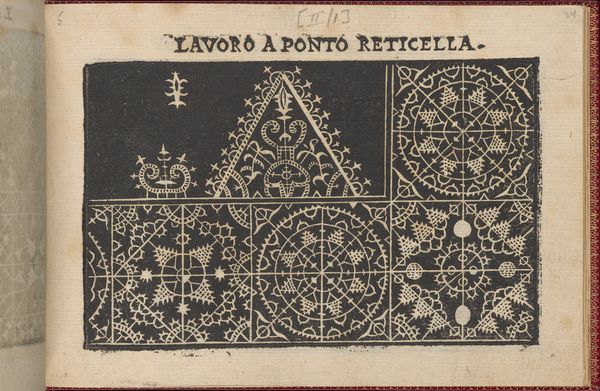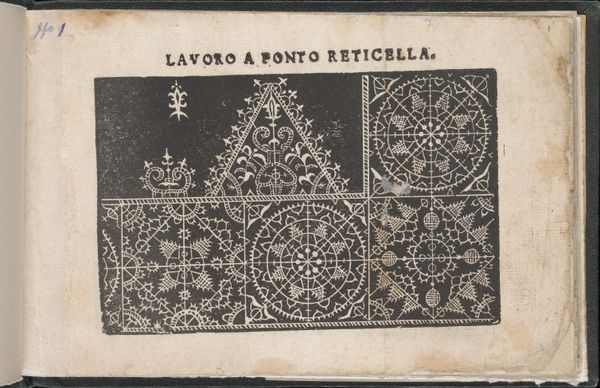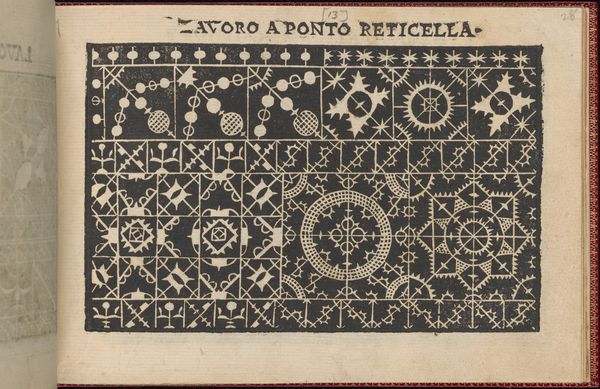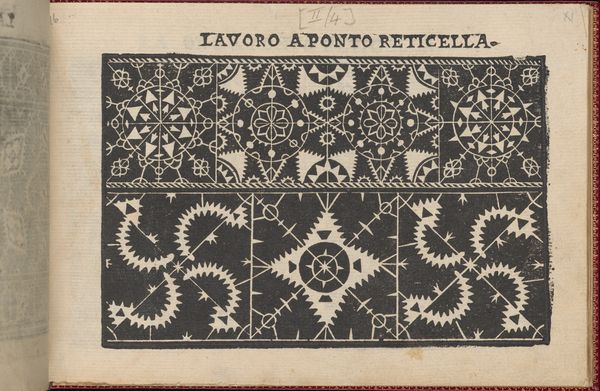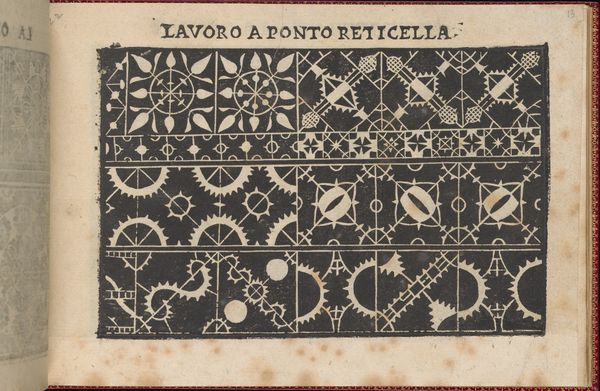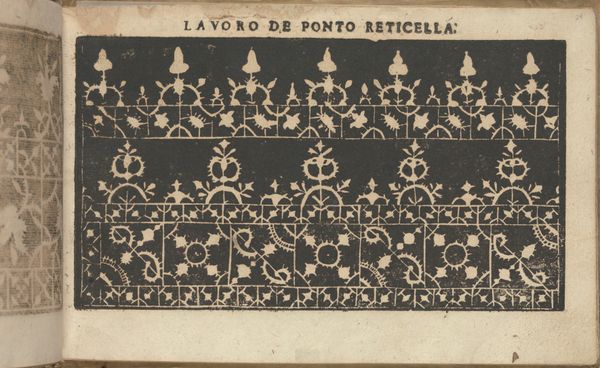
Pretiosa Gemma delle virtuose donne, page 14 (recto) 1600
0:00
0:00
drawing, graphic-art, ornament, print, paper, engraving
#
drawing
#
graphic-art
#
ornament
# print
#
book
#
paper
#
11_renaissance
#
personal sketchbook
#
italian-renaissance
#
engraving
Dimensions: Overall: 4 3/4 x 6 11/16 in. (12 x 17 cm)
Copyright: Public Domain
Curator: Right, let's dive into this page, shall we? It's plate 14, the recto side, from "Pretiosa Gemma delle virtuose donne," or "Precious Gem of Virtuous Women," dating back to 1600. It is currently held at the Metropolitan Museum of Art. Editor: My goodness, what an exquisite collection of... starbursts? They feel incredibly precise, like a blueprint for constellations, but with a slightly obsessive, handcrafted feel. The contrast between the dense black ink and stark white patterns is just so striking! Curator: Spot on! The artist, Isabella Catanea Parasole, created this book as a pattern book for lacemaking, specifically for reticella lace. Each design offered a template or inspiration, something between instruction and artistic provocation. Editor: Lacemaking? These designs are almost aggressively geometric, and they convey such an imposing graphic force, it's wild. Almost otherworldly—far removed from any sort of ‘domestic craft’. Curator: Well, hold on a moment! This 'domestic craft' that you speak of was far from being separate from sophisticated aesthetics, cultural prestige, and the economics of art in general. Pattern books empowered women, offering ways to create desirable objects while simultaneously preserving cultural heritage and spurring economic participation through their crafts. It certainly provided some measure of personal, creative freedom. Editor: Hmm, a fair point. I’m seeing the appeal to aspiring artists as they seek practical applications within society. Now, in the lower register, what exactly am I seeing? Some mechanical flowers... cogs and petals, right? Curator: Precisely. A potent mixing of organic and mechanistic, fitting within the aesthetic inclinations of the Renaissance that, after all, did herald so many scientific and technological advances. In a way, seeing them arranged so systematically, sparks a peculiar meditative sense for me. Editor: Oh, absolutely, like mandalas for material creation! What started out as perhaps slightly daunting symmetry to me, ends with this feeling, very delicate, where each shape is like a moment of concentrated, skillful making. Thank you for leading me towards a new perspective here. Curator: And thank you! Looking at this through your lens has made me more aware of the dynamic between the mathematical and the intuitive.
Comments
No comments
Be the first to comment and join the conversation on the ultimate creative platform.
